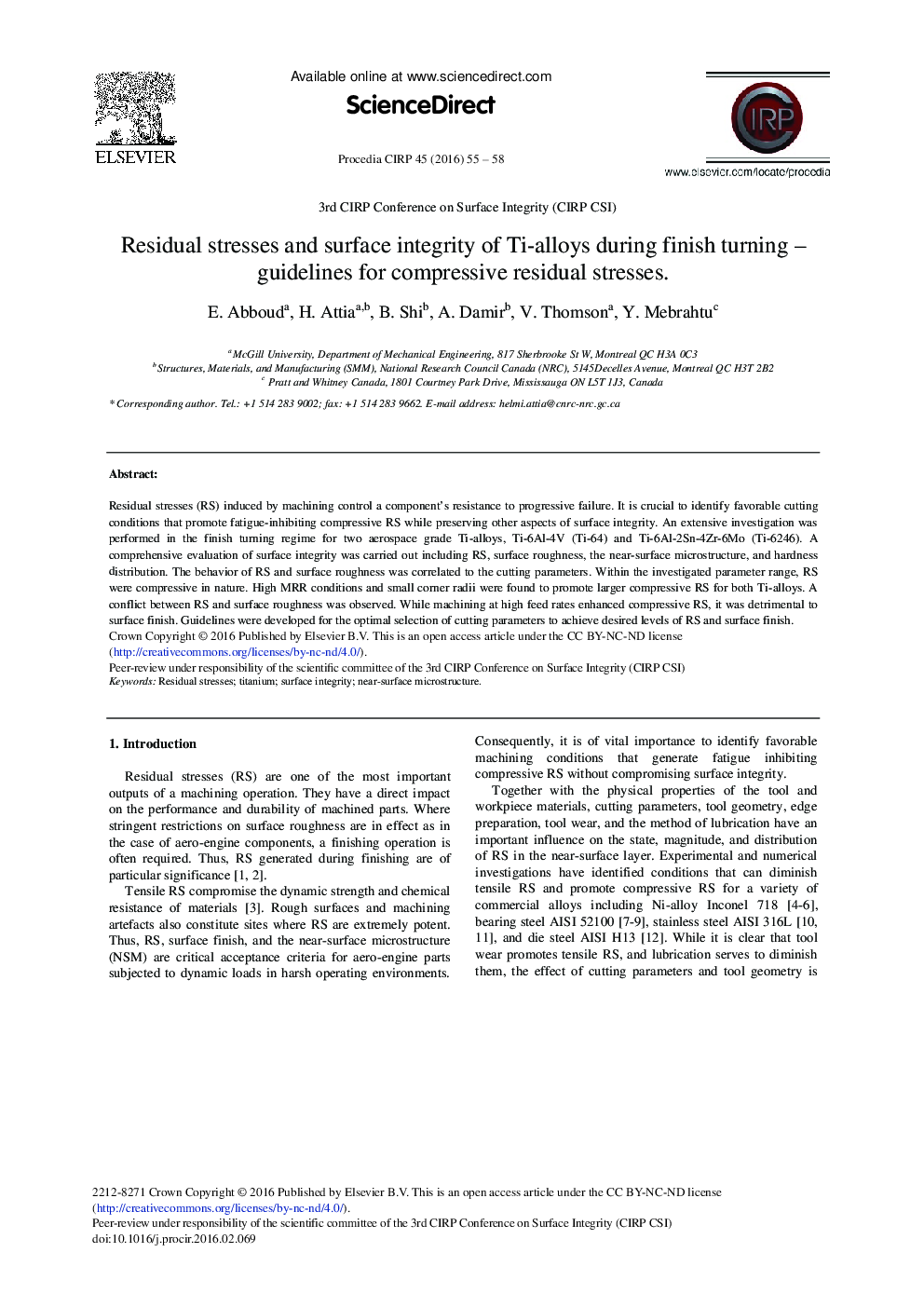| Article ID | Journal | Published Year | Pages | File Type |
|---|---|---|---|---|
| 1698474 | Procedia CIRP | 2016 | 4 Pages |
Residual stresses (RS) induced by machining control a component's resistance to progressive failure. It is crucial to identify favorable cutting conditions that promote fatigue-inhibiting compressive RS while preserving other aspects of surface integrity. An extensive investigation was performed in the finish turning regime for two aerospace grade Ti-alloys, Ti-6Al-4 V (Ti-64) and Ti-6Al-2Sn-4Zr-6Mo (Ti-6246). A comprehensive evaluation of surface integrity was carried out including RS, surface roughness, the near-surface microstructure, and hardness distribution. The behavior of RS and surface roughness was correlated to the cutting parameters. Within the investigated parameter range, RS were compressive in nature. High MRR conditions and small corner radii were found to promote larger compressive RS for both Ti-alloys. A conflict between RS and surface roughness was observed. While machining at high feed rates enhanced compressive RS, it was detrimental to surface finish. Guidelines were developed for the optimal selection of cutting parameters to achieve desired levels of RS and surface finish.
